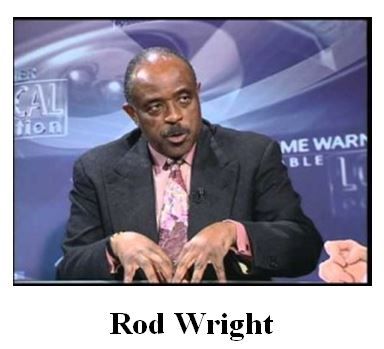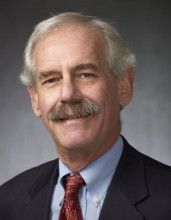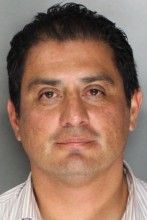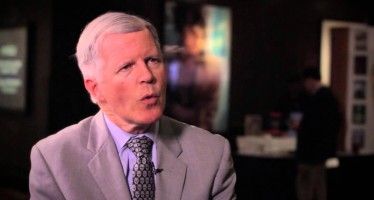Gov. Brown boosts energy-policy leverage

 Gov. Jerry Brown believes it will take “pragmatic caution” and “active collaboration” to achieve his goal of seeing half of the state’s energy come from renewable sources by 2030.
Gov. Jerry Brown believes it will take “pragmatic caution” and “active collaboration” to achieve his goal of seeing half of the state’s energy come from renewable sources by 2030.
“How we achieve these goals and at what pace will take great thought and imagination mixed with pragmatic caution,” Brown said in Monday’s Inaugural Address for his fourth term as governor. “And we will need active collaboration at every stage with our scientists, engineers, entrepreneurs, businesses and officials at all levels.”
Yet, as state leaders take up Brown’s ambitious renewable energy agenda, two of California’s most opinionated energy experts will be missing from the debate.
For more than a decade the Capitol’s two most forceful energy voices have been State Sen. Rod Wright, D-Los Angeles, an influential member of key energy committees, and Public Utilities Commission President Michael Peevey, who spent 12 years as the state’s top energy regulator. Last fall, both were brought down by scandal.
Wright objected to current renewable energy mandate
Wright’s departure, in particular, eliminates a major legislative roadblock for Brown. A former chairman of the Assembly Committee on Utilities and Commerce and influential member of the Senate Committee on Energy, Utilities and Communications, Wright had been the Legislature’s biggest critic of renewable-energy mandates. That was until last September when he resigned his position after being convicted of multiple felonies for lying about his residence.
In 2011, California lawmakers approved Senate Bill 2X1, the state’s first major renewable energy mandate. The bill required that a third of the state’s energy come from renewable sources by 2020. This requirement, known as a Renewable Portfolio Standard, or RPS, was criticized for legislating by popular slogan — rather than setting out a clear plan for achieving its goal.
“Legislation to increase the RPS goals to 33 percent has been attempted in each of the last two sessions,” a Senate bill analysis of SB2X1 stated. “There has been little or no debate about the goal, but there has been great controversy over how to get there and from where the generation should be secured.”
When the bill reached the Senate Floor, Wright expressed concerns about the cost to consumers and taxpayers.
“Today we are about to vote on a bill that could result in a 15 percent to 20 percent rate increase,” Wright, the most passionate critic of the bill, said in his floor speech. “SB2X could very well result in a $1.5 billion hit to the general fund without any demonstrable benefits.”
“Thirty-three percent by 2020 is a great slogan,” Wright complained, “but what are we trying to achieve?”
Brown’s renewable energy adviser set to lead PUC
Brown defended the move as the first step in the state’s long-term renewable energy effort.
“While reaching a 33 percent renewables portfolio standard will be an important milestone,” Brown said in his signing message, “it is really just a starting point — a floor, not a ceiling.”

Brown had help in crafting the mandate from his then-renewable-energy adviser, Michael Picker, who was appointed last month to take over as president of the PUC. If confirmed by the state Senate, Picker can be expected to push Brown’s renewable energy agenda at the PUC. After all, according to Smart Voter, it was Picker’s job in the governor’s office, to coordinate “the statewide effort to help reduce California’s reliance on polluting coal and fossil fuels and bring us closer to our goal of providing at least 33 percent of electricity from renewable generation sources.”
For all his faults, and there are many well-documented by NBC Bay Area’s Tony Kovaleski, Peevey pushed back against elected officials. Throughout his controversial tenure, Peevey seemed impervious to public criticism. He also sought “more flexibility in implementing California’s RPS law,” according to an Restructuring Today, an energy industry newsletter.
Lawmakers unlikely to challenge Brown
It’s unlikely that state lawmaker will fill the energy vacuum left by Wright. In the Assembly, the Utilities and Commerce Committee will be chaired by Assemblyman Anthony Rendon, D-Lakewood. A well-liked lawmaker with two years’ experience on energy, Rendon isn’t expected to rock the boat. In December, Rendon said his top priority as chair of the utilities committee will be transparency.
“Transparency in deciding how California’s businesses and families invest in energy will play a critical role in assuring our state’s vibrant, smart and safe renewable energy future,” he said in a press release announcing his appointment.

Similarly, State Sen. Ben Hueso, D-San Diego, who took over as chairman of the Senate Committee on Energy, Utilities and Communications, won’t thwart Brown’s renewable energy agenda. Last session, he introduced legislation to “force the state’s three investor-owned utilities — SDG&E, PG&E and Southern California Edison — to buy 500 megawatts of geothermal power annually from the Imperial Valley by 2024.” The bill died in the Assembly.
According to Hueso’s web site, his district “incorporates all of Imperial County,” which includes Imperial Valley.
Rate hikes: Wright’s prediction proving true
And what does this all mean for consumers?
Wright’s prediction that RPS would increase energy rates is proving true. School districts throughout the state have been hit with higher electricity bills, due in part to the state’s renewable energy mandate. According to the UT San Diego, the San Marcos Unified School District has seen its energy bill increase by $700,000 over a five-month span compared to the same period in 2013.
“We are stuck,” said Assistant Superintendent Gary Hamels. “It’s a big, big shock.”
A spokeswoman for San Diego Gas & Electric Co. identified “higher costs for the electricity the utility provides customers — due mainly to the growing percentage of more expensive renewable power” as one of three reasons for the rate hike.
Related Articles
Democrats now see downside of CEQA
Feb. 11, 2013 By Steven Greenhut SACRAMENTO — Although many of California’s legislative Democrats are eager to “test drive” the
Video: An unsustainable recovery in California
Former California State Finance Director Tom Campbell gives his take on California’s economic outlook.
S.F. Supervisors pass laws requiring health warnings on soda ads
On Tuesday, the San Francisco Board of Supervisors unanimously voted to pass legislation that would require posted advertisements for sodas




